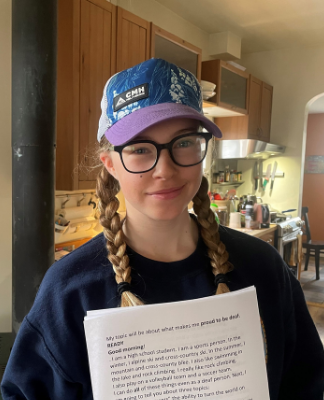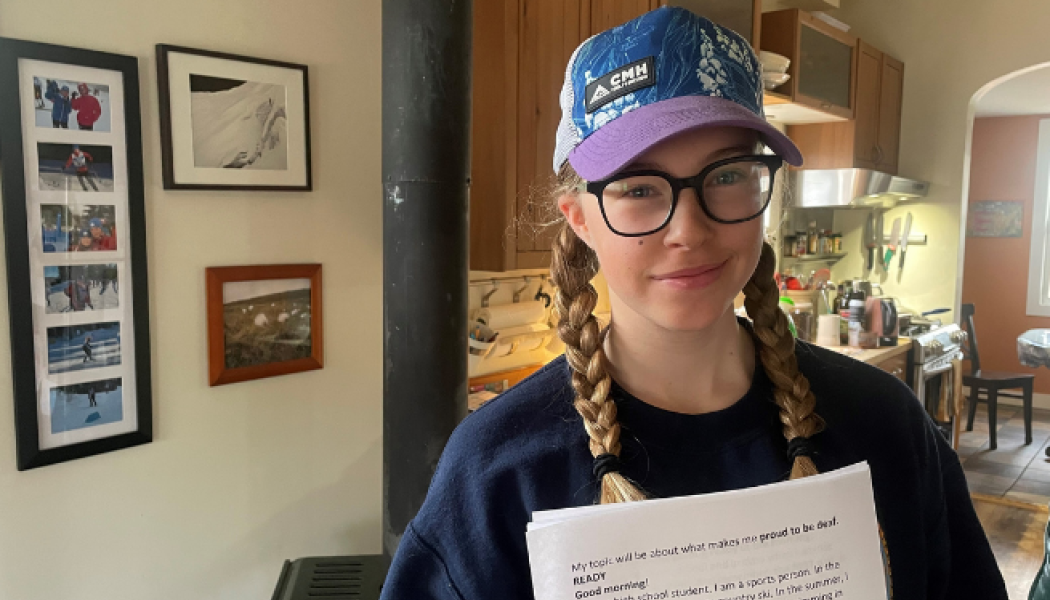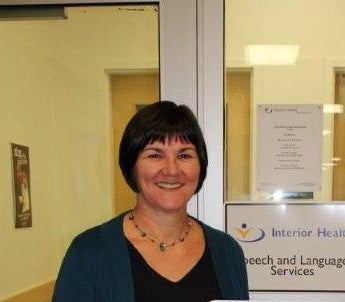Émilie Paquin (pictured above) is a Grade 8 student from Revelstoke. She loves to ski, mountain bike, swim, rock climb, and play volleyball and soccer.
“I can do all of these things – even as a deaf person,” she says, adding that her electronic hearing devices (cochlear implants) have given her “superpowers” that allow her to listen to music without anyone knowing, and even mute her brother when he’s bugging her. She also speaks three languages – English, sign, and French, the latter a result of her parents hailing from Quebec.
“I value these things to be my great qualities in being deaf,” she explains.
That Émilie has learned to define her own existence in a most positive way is testament to her emotional maturity. But it’s also proof that early intervention is crucial to helping children with hearing impairment grow up learning to live with and, in fact, thrive in their abilities, instead of being defined by their disabilities, says Carolyn Duncan, a speech-language pathologist with Interior Health.
“Currently, over 97 per cent of babies born in B.C. are being screened, with one in every 500 babies being born with permanent hearing loss,” says Carolyn. “Hearing and language are connected, and babies who are deaf or hard of hearing need support as early as possible.”
















